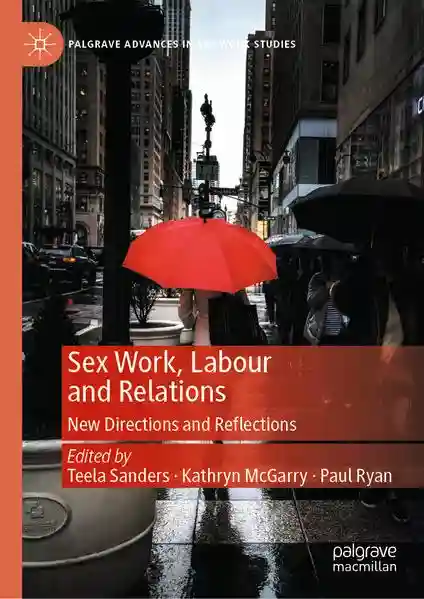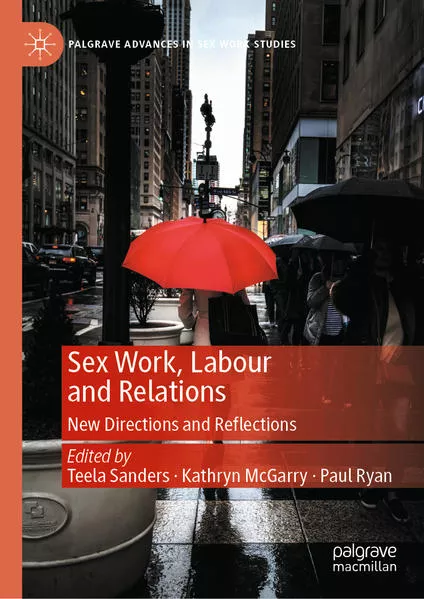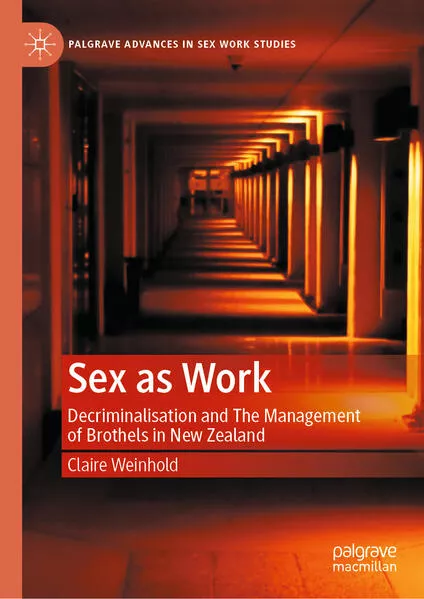Chronologie aller Bände (1 - 3)

Die Reihenfolge beginnt mit dem Buch "Sex Work, Labour and Relations". Wer alle Bücher der Reihe nach lesen möchte, sollte mit diesem Band von Teela Sanders beginnen. Der zweite Teil der Reihe "Sex Work, Labour and Relations" ist am 21.07.2023 erschienen. Mit insgesamt 3 Bänden wurde die Reihe über einen Zeitraum von ungefähr 3 Jahren fortgesetzt. Der neueste Band trägt den Titel "Risk, Stigma, Agency".
- Anzahl der Bewertungen für die gesamte Reihe: 0
- Ø Bewertung der Reihe: 0
- Start der Reihe: 20.07.2022
- Neueste Folge: 01.03.2025
Diese Reihenfolge enthält 3 unterschiedliche Autoren.
- Autor: Sanders, Teela
- Anzahl Bewertungen: 0
- Ø Bewertung:
- Medium: Buch
- Veröffentlicht: 20.07.2022
- Genre: Krimi
Sex Work, Labour and Relations
This edited collection showcases innovative, up and coming researchers’ work in the field of sex work studies across labour/work and relationships. This research is pushing the boundaries of the subject, asking new questions, carving new methodological terrain, and contributing new ideas and empirical findings to the existing literature. Drawing on sociology, criminology, media studies, social and health policy, law and socio-legal studies, the chapters reflect a range of new topics in the sex work studies literature such as religious readings, porn workers and their interactions with fans; romantic relationships, and humour at work. Studies are drawn from Europe, South America, Turkey, Ireland, New Zealand and the USA. This book speaks to academics across the social sciences and humanities who are interested in sex work studies.
- Autor: Weinhold, Claire
- Anzahl Bewertungen: 0
- Ø Bewertung:
- Medium: Buch
- Veröffentlicht: 23.11.2022
- Genre: Krimi
Sex as Work
This book examines the ways that brothels are managed under decriminalisation in New Zealand. New Zealand decriminalised sex work in 2003 with the passage of the Prostitution Reform Act, making it the first country to do so. Decriminalisation situates brothels as ‘businesses like any other’ and creates a legislative platform for better working conditions for sex workers. Nevertheless, we have limited understanding of how brothels are managed in New Zealand. Drawing on interviews with brothel operators and sex workers, this book explores how the law is understood and implemented, how brothel operators position their businesses, and how they seek legitimacy in a historically stigmatised sector. It also examines the rules and norms by which operators manage their businesses and the possibilities for sex workers to consent to commercial sexual services in the context of neoliberal norms of work and of managers who expect them to be professionalised, responsibilised and productive.
- Autor: Sinha, Sunny
- Anzahl Bewertungen: 0
- Ø Bewertung:
- Medium: Buch
- Veröffentlicht: 01.03.2025
- Genre: Sonstiges
Risk, Stigma, Agency
This book centers the life histories of three women engaged in sex work in Kolkata, India to show how they make sense of their lived experiences and reveals deep insights into the risks women face in the current social environment of India. Much of the risk discourse surrounding sex work in India comes from academics, social and health workers, epidemiologists, and policymakers. Departing from this approach, the author foregrounds the lives and voices of the women themselves to provide a richly nuanced picture of the diverse and complex realities that shape many women’s lives in India. It provides a deeper understanding of the different but interrelated vulnerabilities to which many sex workers are subject, including poverty, familial violence, child marriage, marital rape, public ridicule, stigma, and health risks such as HIV/AIDS, along with their reasons for entry, exit, and reentry into sex work. This book will be of interest to researchers and students from a variety of academic disciplines, such as social work, anthropology and sociology, women’s studies, public health, and criminal justice. It has also been written in an accessible and engaging style that should appeal to a diverse global audience of non-academic professionals as well as scholars. It will resonate with professionals in health or social welfare fields (e.g., nurses, social workers, lawyers, psychologists) who address issues of violence against women, human trafficking, or health risks in sex work.


